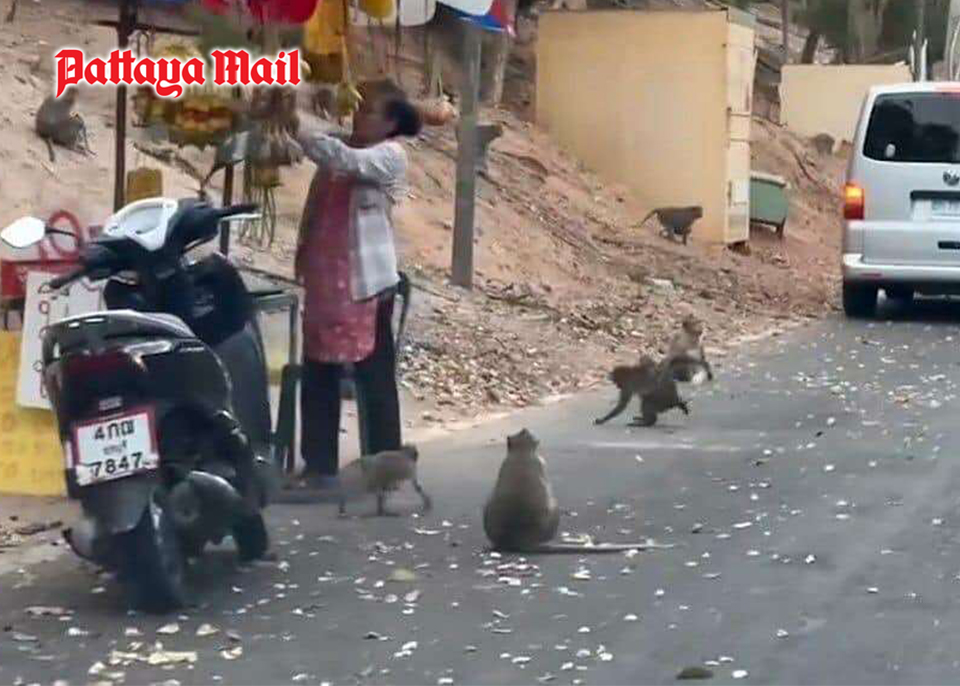
BANGSAEN BEACH, Thailand – In the sweltering heat of midday on March 8, a surge of hungry monkeys descended from the hills of Khao Sam Muk at Bang Saen Beach in the Saen Suk Sub-district of Chonburi Province, exhibiting signs of desperation, where they eagerly awaited sustenance from passing tourists.
Some monkeys, in their quest for food, resorted to climbing onto cars, seemingly attempting to access the interiors. Reports emerged of aggressive behaviour from monkeys when tourists failed to provide food, resulting in injuries.

In one documented incident, a tourist was bitten on the leg by a monkey, highlighting the potential risks of interacting with wildlife in the area. Despite the injury, the tourist did not seek immediate medical attention, emphasizing the need for caution during such encounters.
This behaviour sharply contrasts with the more docile demeanour of monkeys in urban settings like Lopburi. Local authorities and organizations are now deliberating strategies to manage the monkey population, including the establishment of designated feeding areas and the implementation of sterilization programs.
Tourists are strongly advised to exercise caution and refrain from direct contact with the monkeys to mitigate the risk of harm. Feeding the monkeys is discouraged as it could escalate aggressive behaviour.
As efforts to address the situation progress, it is imperative for both residents and visitors to uphold vigilance and show respect for the natural habitat of these animals, ensuring the safety and well-being of all involved.








